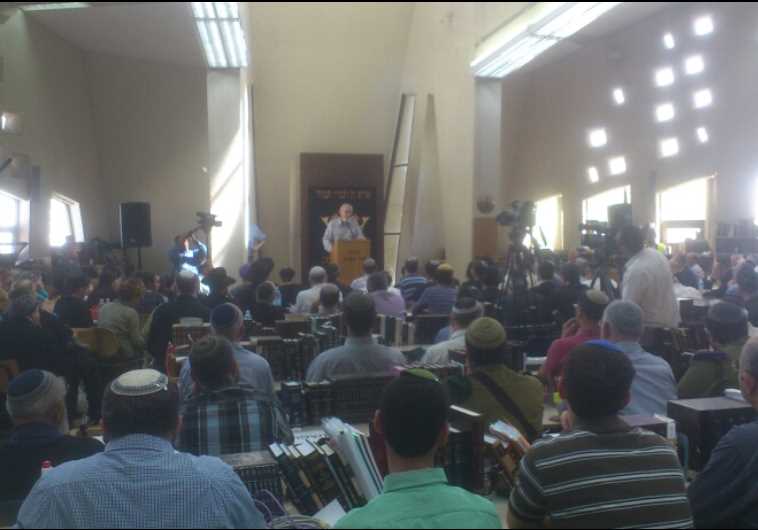Mourners bid tearful goodbye to beloved rabbi Lichtenstein
Rabbi Aharon Lichtenstein was the revered head of a prestigious religious-Zionist yeshiva who died Monday at the age of 81.
 Mourners attend a funeral service for Rabbi Aharon Lichtenstein(photo credit: YONAH JEREMY BOB)
Mourners attend a funeral service for Rabbi Aharon Lichtenstein(photo credit: YONAH JEREMY BOB)